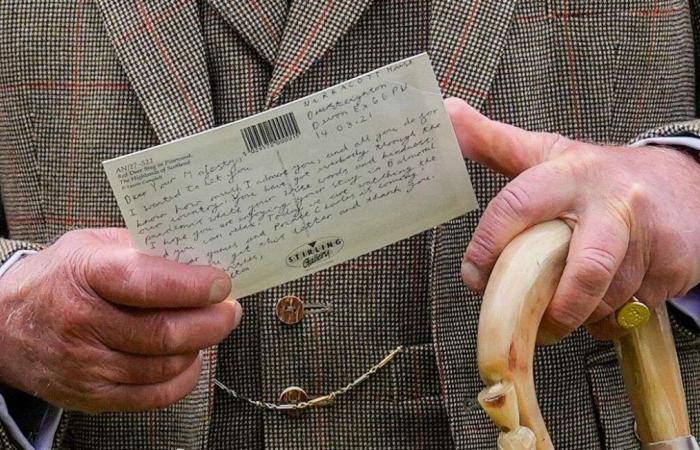
Among the unfathomable mysteries of the universe, there is the Post Office. And if we still don't know how to explain why a minute in the queue at a postal agency is equivalent to a year in real life, we now think we know how a postcard can take decades to be delivered to its recipient. Come on, let’s explain that to you.
At the beginning of November, the postman slipped a postcard sent forty-seven years earlier from Brittany into the mailbox of a retired couple living in Aisne. In Loiret, last January, a card posted in 1989 finally arrived at its destination. In December 2014, a postcard took ninety years to reach its recipient in Charente. But the prize goes to a letter distributed in the North, in 2015, one hundred and thirty-eight years after being sent.
Fold dropped behind a machine or lost in a crash
Stories like that, there are many others, “but it remains very marginal,” assures the management of the La Poste group to 20 Minutesspecifying that in 2023, “six billion letters have been distributed”. However, to explain these isolated cases, La Poste puts forward several theories: “a letter discovered by an individual during a move or a letter found behind a machine while reorganizing a sorting site which is put back into the distribution circuit”. Stéphane, a Lille resident contacted by 20 Minutesexplains that he ended up putting a postcard that arrived at his home by mistake ten years earlier in a mailbox.
For Bernard-Hubert Dedieu, expert in postal history in Bordeaux, “accidents” also explain very late delivery. “It can take a while to find mail after a plane crash or after a boat has sunk, for example. You then have to find the recipient or sender and put the mail back into the circuit,” he explains.
Deliver mail at all costs
However, there is another, more incredible reason, which explains why letters delivered decades later are essentially postcards. “There is a large community of card collectors and some put them back into the distribution circuit, either to get people talking about them, or for other reasons,” assures the management of the La Poste group. “It’s true that it happens,” recognizes Bernard-Hubert Dedieu. “Instead of finding somewhat exceptional cards by chance, there are collectors who will provoke this interest in this way,” adds the expert.
Once the ancestral mail is put back in the loop, it's La Poste's problem. “In our public service missions, we have this fundamental principle of putting back into the circuit and forwarding the items entrusted to us, even if it is an old postcard with an old postmark,” assures La Job.
Read our articles on the mysteries unlocked for you
Afterwards, it's case by case. Either the recipient or a descendant still lives at the address indicated and the matter is settled. Either the item is returned to the sender if it is mentioned and the address is still valid. “Either the envelope is sent to our lost objects center in Libourne where it will be opened to try to find information in order to be able to forward it,” explains La Poste. As a last resort, if there is nothing, these orphaned items are archived, “we don't throw anything away,” assures the group's management.





